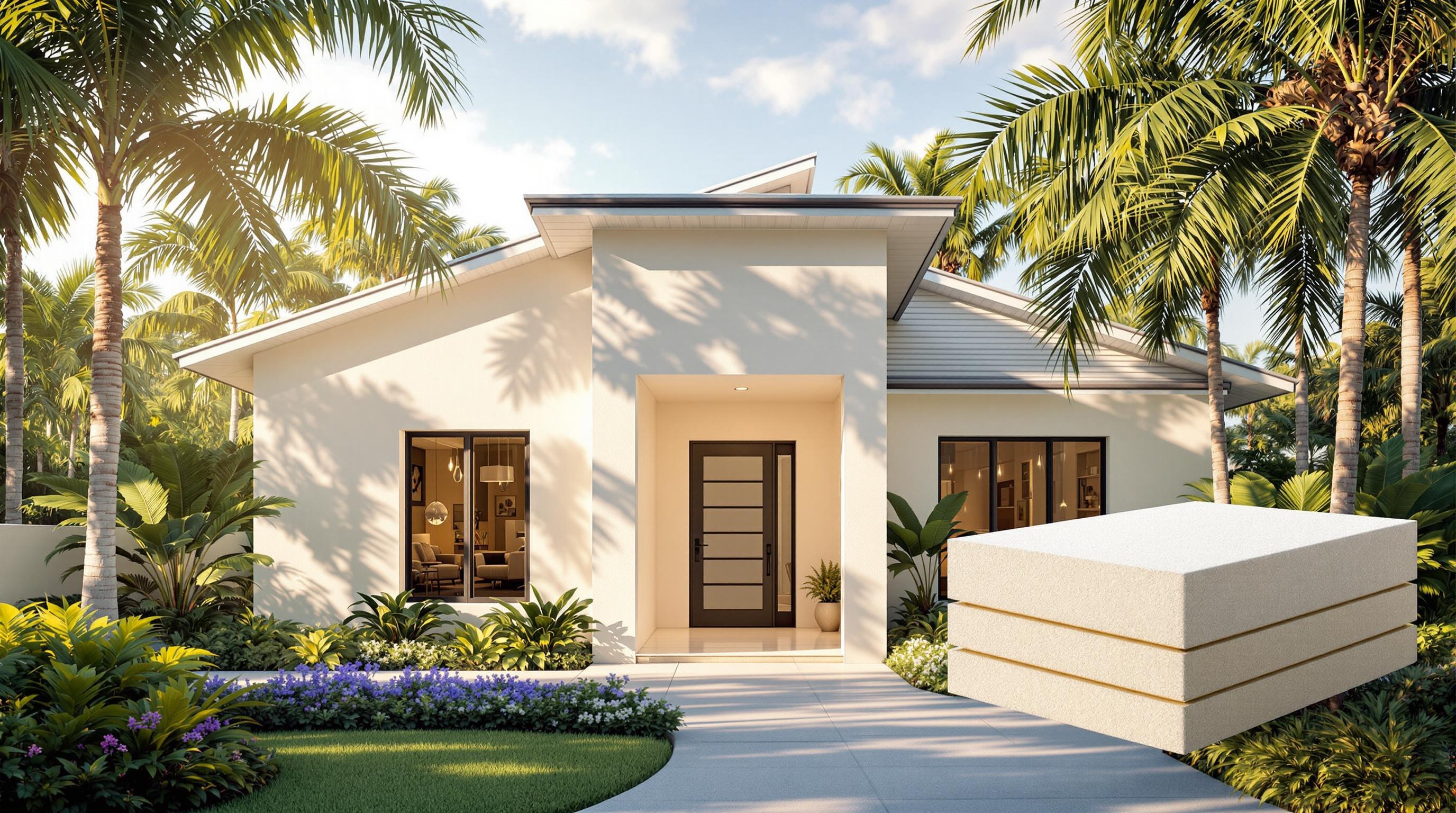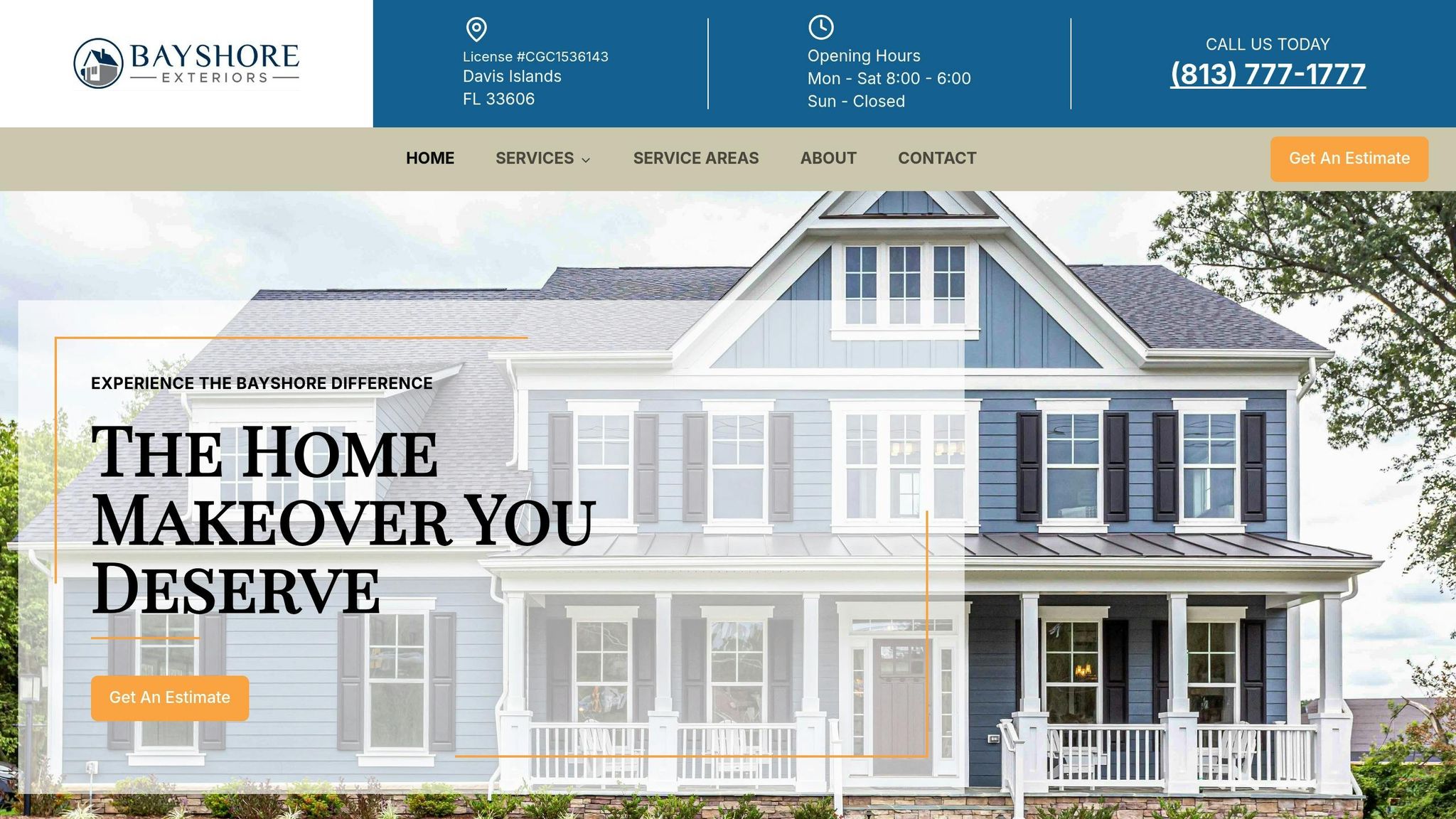Insulation for Florida Homes: What to Know

Insulation for Florida Homes: What to Know
Living in Florida? Here's what you need to know about insulation:
Florida's hot, humid climate makes insulation essential for keeping your home cool, reducing energy bills, and preventing moisture issues like mold. The right insulation can also protect your home during storms and keep it comfortable year-round.
Key Takeaways:
- Combat Heat: Insulation blocks heat from entering, lowering cooling costs.
- Control Moisture: Moisture-resistant insulation prevents mold and structural damage.
- Durability: Choose materials that withstand Florida’s humidity, heat, and pests.
Top Insulation Options for Florida:
- Spray Foam: Excellent heat resistance and moisture control.
- Fiberglass: Budget-friendly with good thermal performance.
- Radiant Barriers: Reflects heat, reducing attic temperatures.
Proper installation is just as important as material choice. Professional installers ensure gaps are sealed, maximizing energy efficiency and comfort.
A Guide To Insulating Old Homes For HOT HUMID Climates ...
Florida's Climate Challenges for Home Insulation
Florida's weather creates unique hurdles for keeping homes insulated effectively. Knowing how these factors impact insulation can help you choose the best options for maintaining comfort indoors.
Managing High Humidity
Florida's constant humidity can cause serious moisture problems for insulation. When moisture seeps into walls or attics, it can:
- Lower insulation's ability to resist heat
- Cause condensation inside wall spaces
- Lead to mold and mildew growth
- Damage the structure over time
To combat this, consider using moisture barriers and vapor-resistant insulation to help keep your indoor spaces dry.
Dealing with Extreme Heat
Florida's summers bring intense heat and strong sunlight, which can wear down insulation over time. This reduces its effectiveness and forces air conditioning systems to work harder. Insulation in Florida needs to handle these high temperatures to maintain energy efficiency and keep homes comfortable.
Protection from Storms
Storm season in Florida can be tough on homes, but quality insulation can make a difference. It helps by:
- Preventing moisture from entering during heavy rains
- Adding support to the structure during high winds
- Working alongside other weather-resistant materials to protect your home
Choosing the right insulation is key to tackling Florida's unique climate challenges.
How to Select the Right Insulation
Choosing insulation for your Florida home isn't just about keeping things cool. With Florida's high heat and humidity, you need to focus on thermal performance and durability to handle these tough conditions.
R-Values for Florida Homes
Florida's building codes specify minimum R-values for different parts of your home. Make sure the insulation you pick meets or exceeds these standards to keep your home running efficiently.
Moisture Resistance Matters
Humidity is a big concern in Florida, so go for insulation with moisture-resistant features. Look for options with built-in vapor barriers or water-resistant treatments to help prevent mold and protect your home's structure. These features ensure the insulation stays effective over time.
Durability Over Time
To get the most out of your insulation, make sure it:
- Holds up under high temperatures without losing effectiveness
- Is resistant to pests like termites and rodents
- Doesn't settle or compress, which can reduce its performance
Finally, professional installation makes a big difference. Proper fitting prevents gaps and compression, which can undermine your insulation's ability to do its job.
sbb-itb-85e0110
Top Insulation Types for Florida
Here are the most effective insulation choices for Florida homes, designed to handle the state's heat, humidity, and moisture challenges.
Spray Foam Insulation
Spray foam insulation forms a tight seal and comes in two types:
- Closed-cell foam: Offers an impressive R-value of 6.5 per inch and acts as a complete moisture barrier.
- Open-cell foam: With an R-value of 3.5 per inch, it's more budget-friendly but less resistant to moisture.
Its ability to expand and fill every gap can lower cooling costs by 15–20%.
Fiberglass Insulation
Fiberglass is an affordable and flexible option for Florida homes, available in two main forms:
- Batts and rolls: Pre-cut pieces that fit snugly between wall studs and ceiling joists.
- Blown-in: Loose-fill material, perfect for retrofitting attics and walls.
Modern fiberglass is treated to resist moisture and can provide R-values ranging from R-13 to R-19 in walls, and up to R-30 in attics when installed correctly.
Radiant Barriers
Radiant barriers work well under Florida's intense sun by reflecting up to 97% of radiant heat. This can lower attic temperatures by 20–30°F during the hottest hours, cutting cooling costs by 5–10%. For the best results, radiant barriers should be installed with an air gap and paired with traditional insulation to combat both radiant and conductive heat.
Working with Insulation Professionals
Why Choose Professional Installation?
Hiring professionals ensures your home's insulation performs at its best. They use specialized techniques designed for Florida's unique climate, sealing every gap to boost energy efficiency and comfort.
Bayshore Exteriors: Your Local Experts

Bayshore Exteriors brings Tampa Bay-specific knowledge to tackle Florida's insulation needs. They begin with a detailed evaluation of your home, considering factors like design, weather exposure, energy efficiency goals, and budget. With a skilled team and top-quality materials, they provide end-to-end services, including consulting, planning, and installation, all tailored to your home.
Insulation Choices for Florida Homes
Florida's climate brings heat, humidity, and storms, making insulation a key factor in maintaining comfort and safety. Good insulation helps regulate indoor temperatures, controls moisture, and adds a layer of protection against severe weather when the right materials and techniques are used.
For Florida homes, it’s important to choose materials that resist moisture, have a high R-value, and are suited to the region's conditions. Look for insulation that prevents mold growth, meets local energy standards, and adds storm resilience.
Proper installation is just as critical as material selection. Bayshore Exteriors offers thorough evaluations tailored to your home's design, local weather, and energy needs. With their Tampa Bay expertise, they ensure your insulation system is built to handle Florida's tough climate while improving energy efficiency.
Reach out to Bayshore Exteriors for a professional consultation and protect your home with insulation designed for Florida's unique demands.